Introduction & Analysis
This collection of open-source English-language news articles published over the past week highlights significant events and issues concerning Myanmar. They present a snapshot of the country's safety and security landscape.
Conflict continues across Myanmar, with the Arakan Army and other resistance forces making significant territorial gains against the military junta, which has responded with intense airstrikes targeting both combatants and civilians. China is actively involved, intervening to protect its economic interests by pressuring ethnic armed groups to withdraw from strategic locations like Lashio and reportedly aiding the junta with digital surveillance technology and potentially private security. The region also faces a surge in drug trafficking and cyber-scam operations emanating from the Golden Triangle, often linked to transnational criminal groups and utilizing technologies like Starlink. The humanitarian crisis is dire, marked by mass displacement, civilian casualties, deteriorating prison conditions, and the perilous situation of Rohingya refugees attempting to flee the country. Regionally, ASEAN is grappling with how to address the crisis effectively, facing criticism for its engagement with the junta and its seemingly ineffective peace initiatives. At the same time, neighboring countries deal with border security concerns and refugee flows.
ASEAN
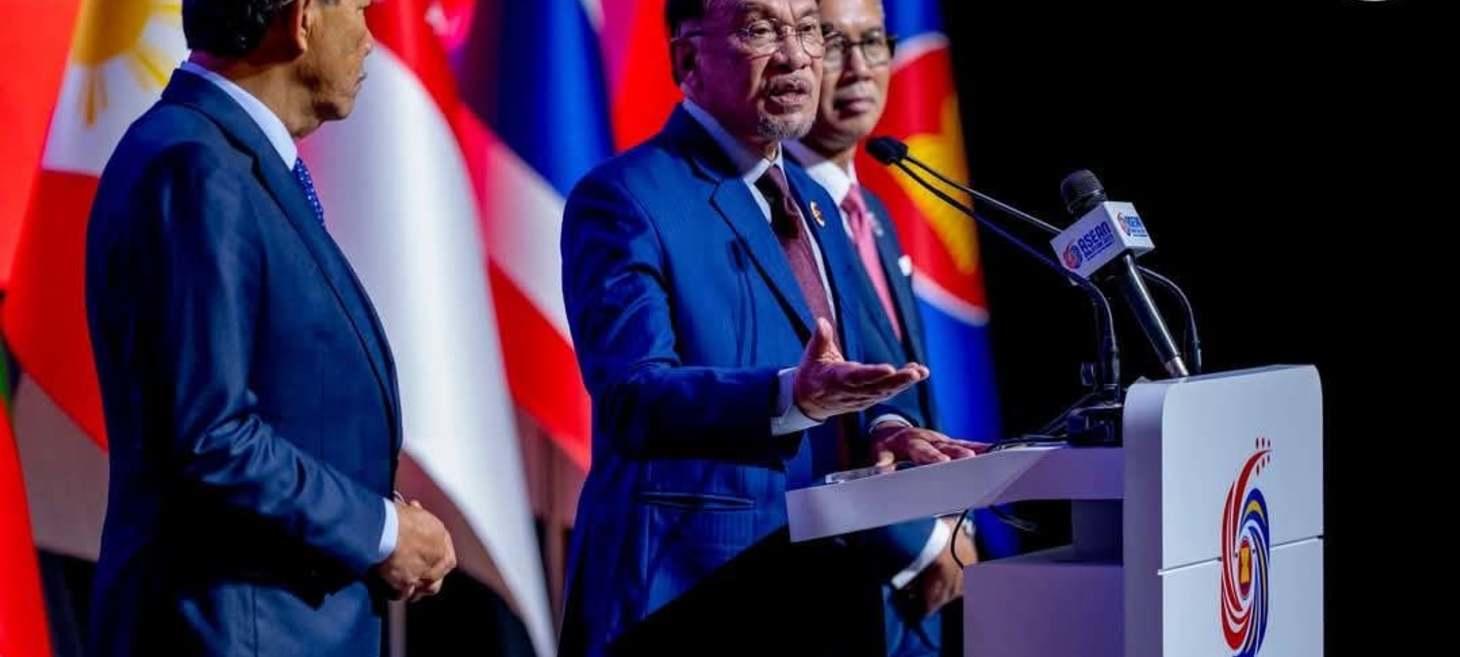
ASEAN SUMMIT IN KUALA LUMPUR: Usual Five-Point Consensus reiteration with inclusive dialogue proposal
At the Kuala Lumpur summit, ASEAN leaders reiterated the Five-Point Consensus, expressed deep concern over Myanmar's escalating conflict and deteriorating humanitarian situation, and issued a 9-point statement urging all parties to extend temporary ceasefires and cease violence against civilians to build trust for inclusive dialogue. While the National Unity Government (NUG) welcomed ASEAN's initiative, appreciating the calls for cessation of violence, voices from resistance groups deemed ceasefire calls unrealistic given the military council's continued attacks and the perceived failure of the Consensus, arguing that armed struggle is necessary. The sources highlight ASEAN's approach of engaging multiple stakeholders and seeking a "Myanmar-owned, Myanmar-led" solution, contrasting it with China and Russia's interest-based support for the military junta, with Malaysia specifically defending its separate engagements with both the military leader and the NUG as a necessary risk for peace.
Census & Elections
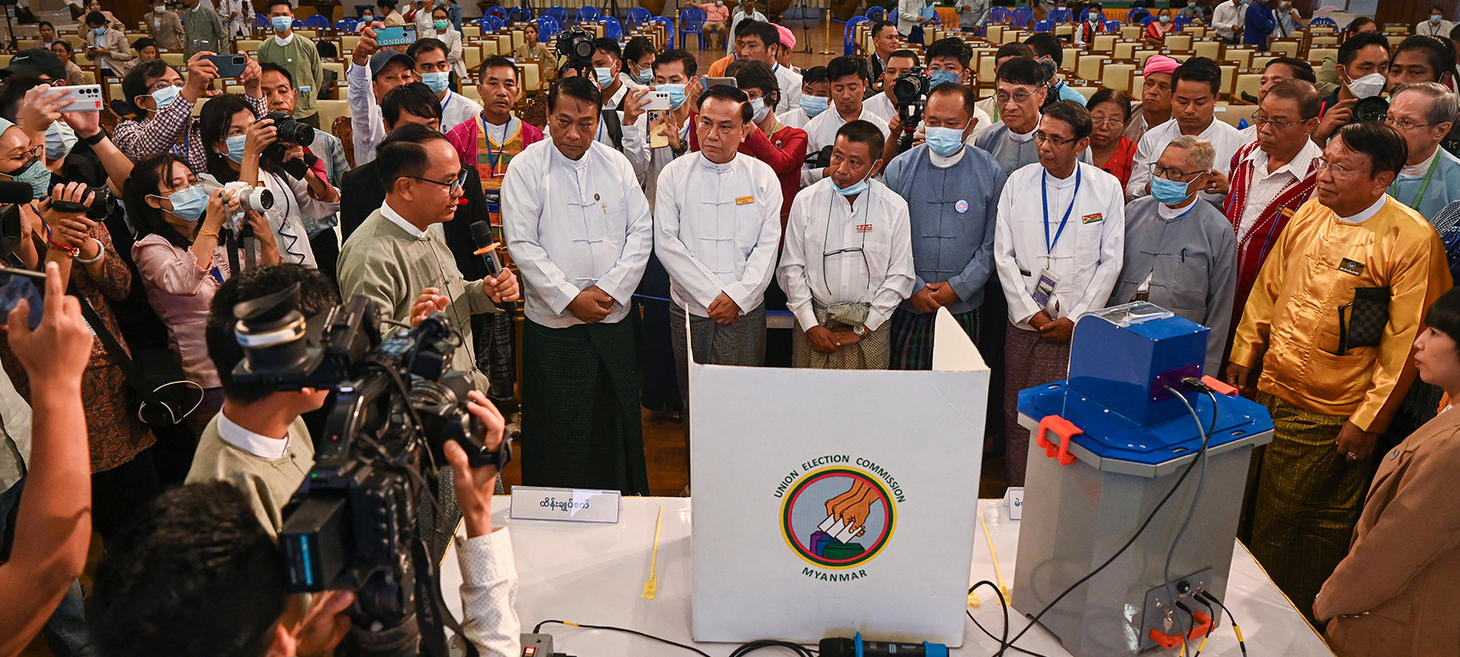
Some Bitter Truths About What the Junta’s Election Will Mean for Myanmar
The Myanmar military junta is planning to hold an election, despite controlling potentially as little as 40-50% of the country and facing significant resistance, which includes assassinations of local election officials. While Western nations are expected to dismiss the outcome as fraudulent, regional powers like China, India, and ASEAN members are likely to accept the results, thereby granting legitimacy to what will essentially be military rule under a different guise and isolating the pro-democracy National Unity Government. This scenario unfolds as international bodies are seen as unlikely to provide meaningful support and diverse resistance forces, despite battlefield successes, lack a central command, and face external pressures.
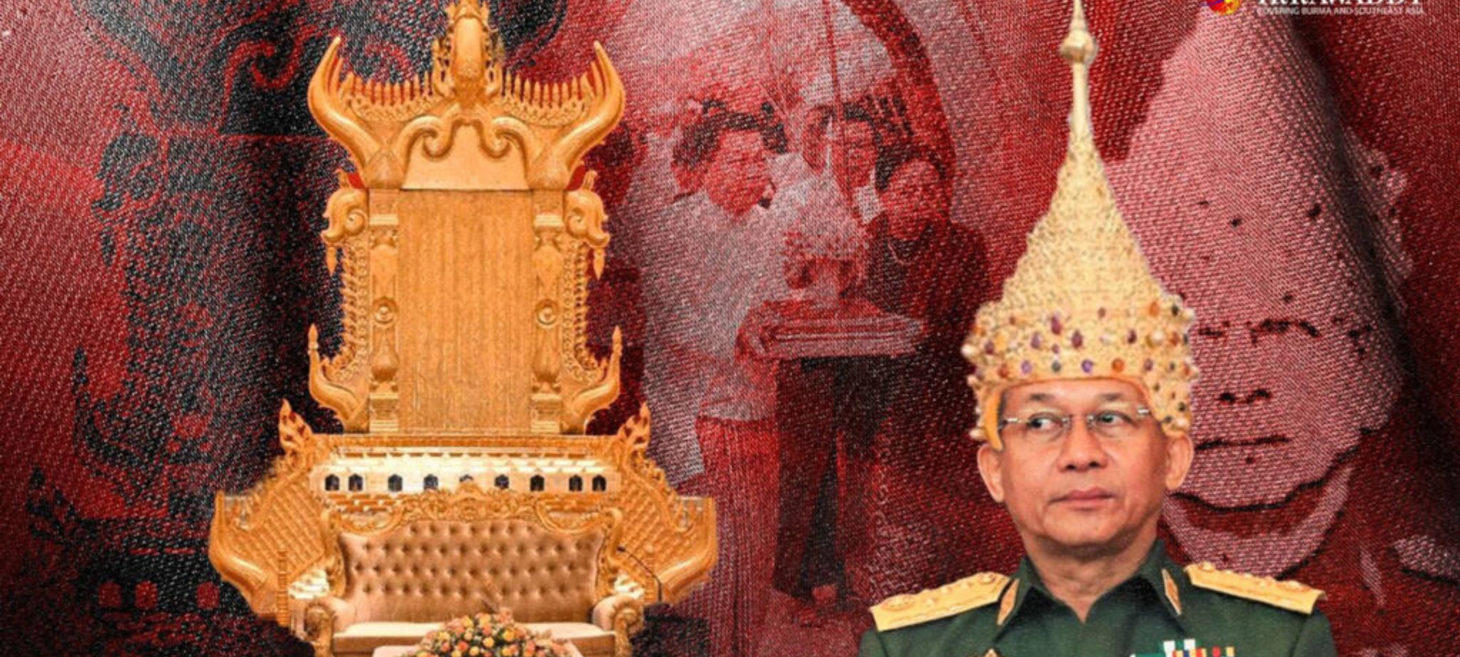
Yadaya: How Myanmar’s Junta Boss Hopes to Hex His Way to Presidency
Myanmar junta chief Min Aung Hlaing frequently performs yadaya, Burmese magic rituals, to avert misfortune and bring good luck, often in pursuit of his ambition to become president. These rituals include enshrining items like a bejeweled crown associated with the monarchy, consecrating pagodas under the guidance of his astrological adviser Vasipake Sayadaw, and even flying to Moscow to anoint a pagoda. His actions, seen by many as a supernatural insurance policy for the upcoming December election, are part of a pattern of military leaders relying on superstition, astrology, and black magic, including using "magic emblems" like large rubies and white elephants to legitimize their rule.
Conflict
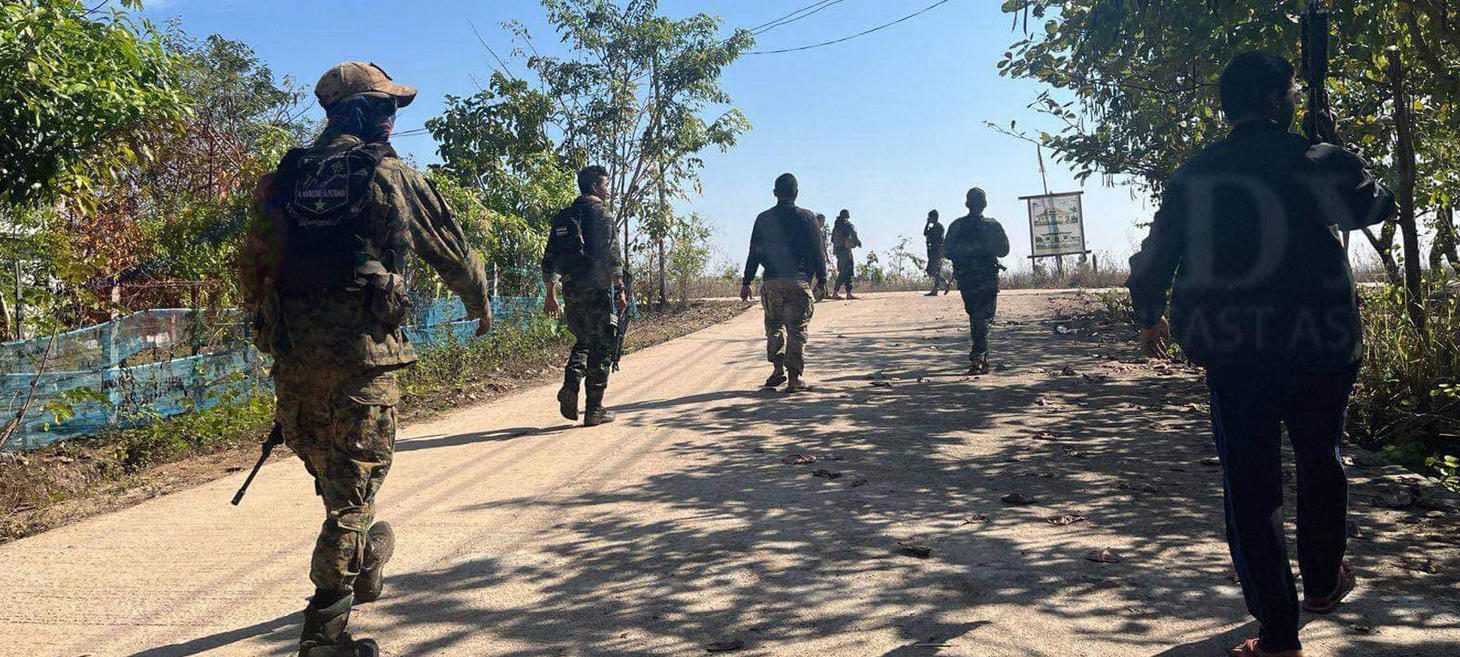
Myanmar Junta Troops Regroup to Retake Bases Guarding Myawaddy
Myanmar’s regime is regrouping hundreds of troops at Infantry Battalion 275 in Myawaddy town to prepare an offensive aimed at reclaiming the Thingannyinaung operational command base and three battalions guarding Myawaddy. This effort comes after resistance attacks forced some junta troops to flee into Thailand and a previous counteroffensive, Operation Aung Zeya, failed to retake the bases. Although around 700 troops have gathered, some are reportedly demoralized, and resistance fighters have prepared for the advance, having cut off routes other than the main highway.

Control of Sittaung River basin in hands of resistance, Karen fighters
According to a reporter who spent a month on the west bank of the Sittaung River, control of the Sittaung River basin is reportedly in the hands of resistance forces and Karen fighters, not the military. The People’s Defence Forces (PDF) are described as exercising control in a broad territory on the western bank. The reporter, returning to his home region of Bago after more than three years away, observed PDF fighters preparing for field operations and performing logistical work in the basin.
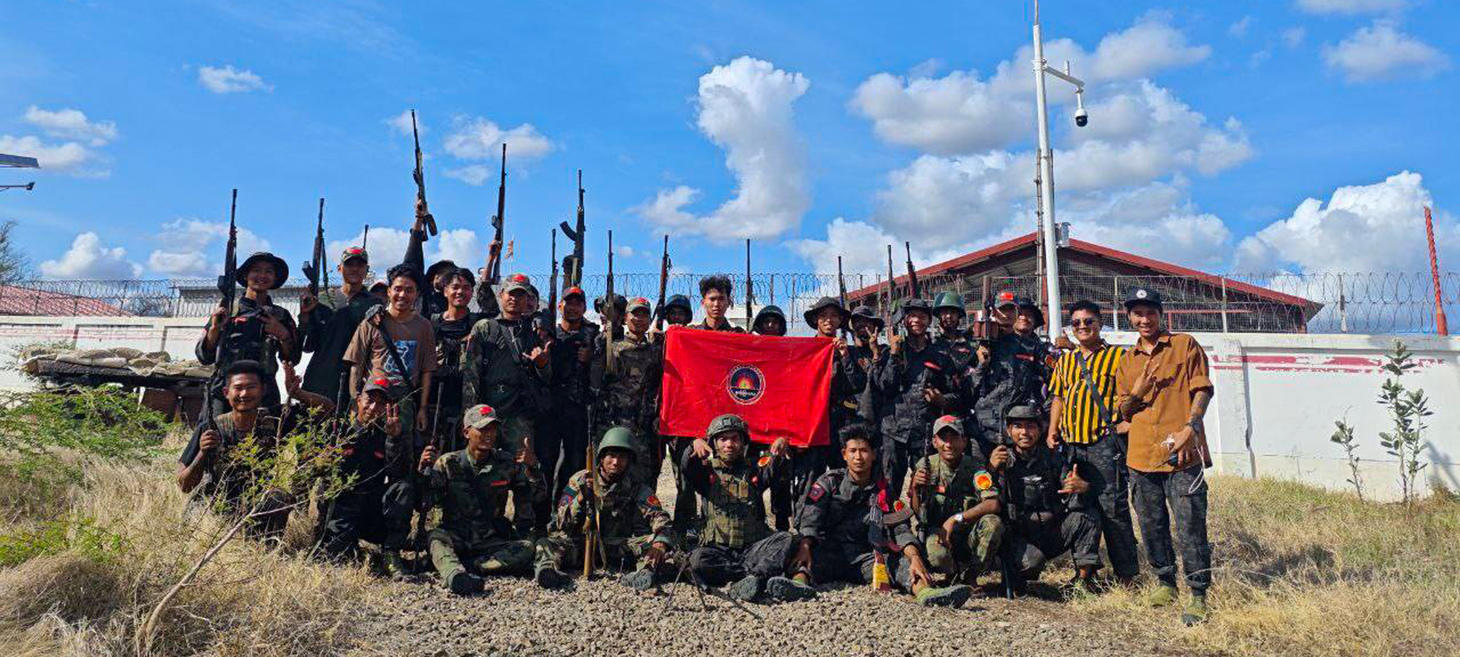
Junta Troops Massing to Reclaim Myanmar’s China-Backed Pipelines
Myanmar regime reinforcements are massing in Taungtha Township to reclaim China-backed oil and gas pipelines previously captured by resistance forces. Resistance groups initiated Operation 9/A Nyar Myae on May 15, attacking junta positions along the pipelines in Myingyan District and successfully taking control of locations in Natogyi. Military tensions remain high as junta troops prepare attacks along the pipelines, and fighting in areas like Taungtha town has resulted in casualties and fires.
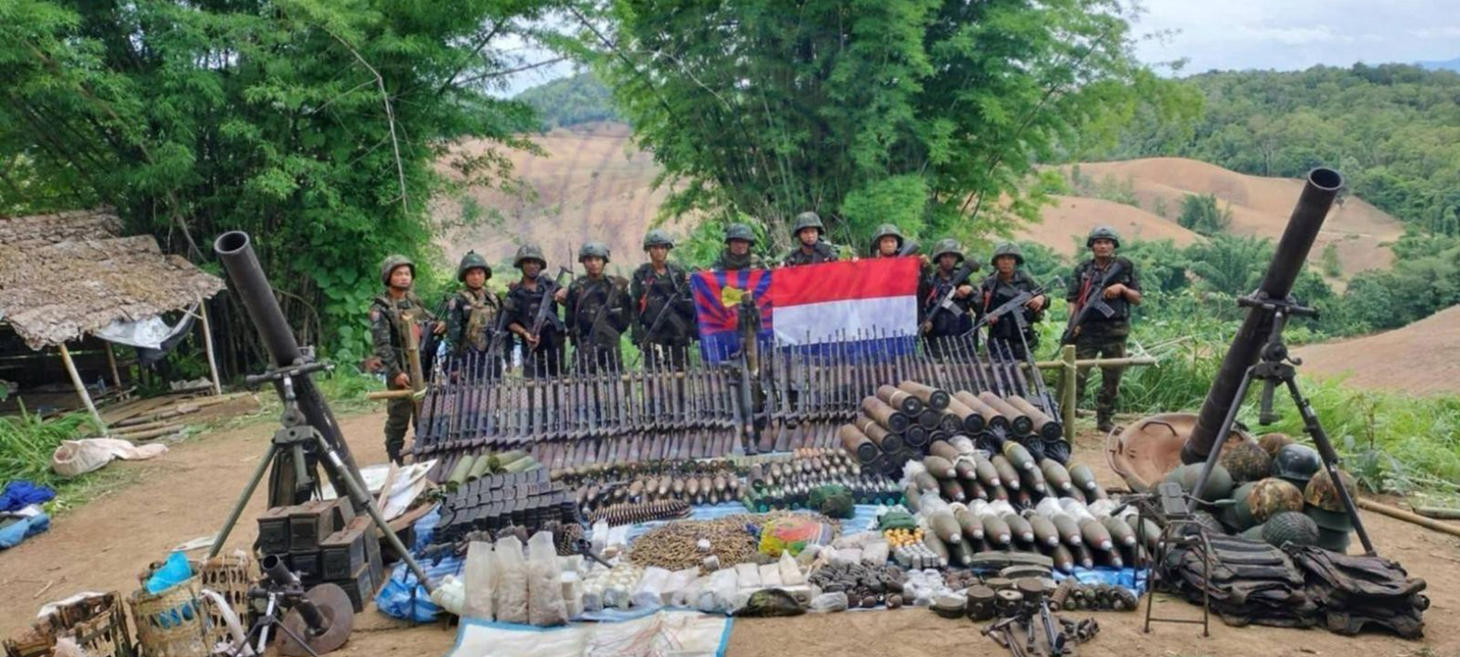
Karen Offensive Seizes a Dozen Junta Bases Along Myanmar-Thai Border
The Karen National Union (KNU) and allied forces have launched a coordinated offensive along the Myanmar-Thai border, capturing a dozen junta bases across multiple states and regions. Strategic locations seized include the Bayint Naung mountain outpost and Kanel Lay base, with some junta troops fleeing into Thailand during the fighting. The offensive is continuing, targeting remaining junta positions along the border, and allied Karen forces are renewing efforts to reclaim former bases like Thay Baw Boe camp.
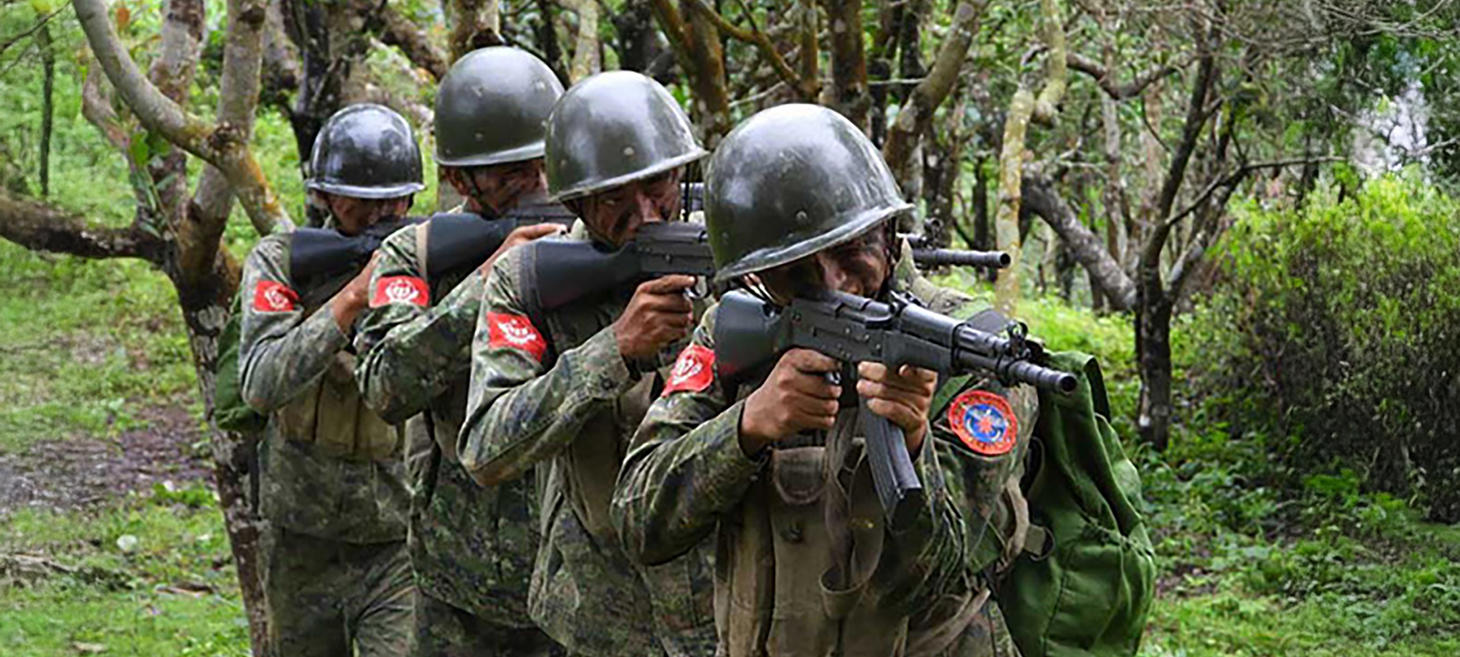
AA Kills Myanmar Junta General near Kyaukphyu
Fighting is intensifying around Kyaukphyu in Rakhine State as the Arakan Army (AA) advances on the port town, seizing regime positions south of the town. Brigadier General Kyaw Myo Aung, a Division 11 strategist for the regime, was reportedly killed by AA marksmen near Kyaukphyu on Monday, with his body flown to Yangon and buried there. The fighting is occurring near significant Chinese investments, including an oil and gas terminal and pipelines, and Chinese private security groups are reportedly assisting the regime with drone attacks to protect these interests.

Five Civilians Injured in Mongkut Grenade Attack Amid Escalating Clashes
On May 23, 2025, five civilians were injured in a grenade attack in Mongkut (Mogok) near the Shan-Mandalay border. Unidentified assailants on a motorcycle hurled two grenades near a bus stop in an area under the control of the Ta’ang National Liberation Army (TNLA), following previous similar attacks in the region earlier in May. This incident is part of escalating violence and has intensified security concerns in Mogok amid clashes between armed factions and shadowy assailants.
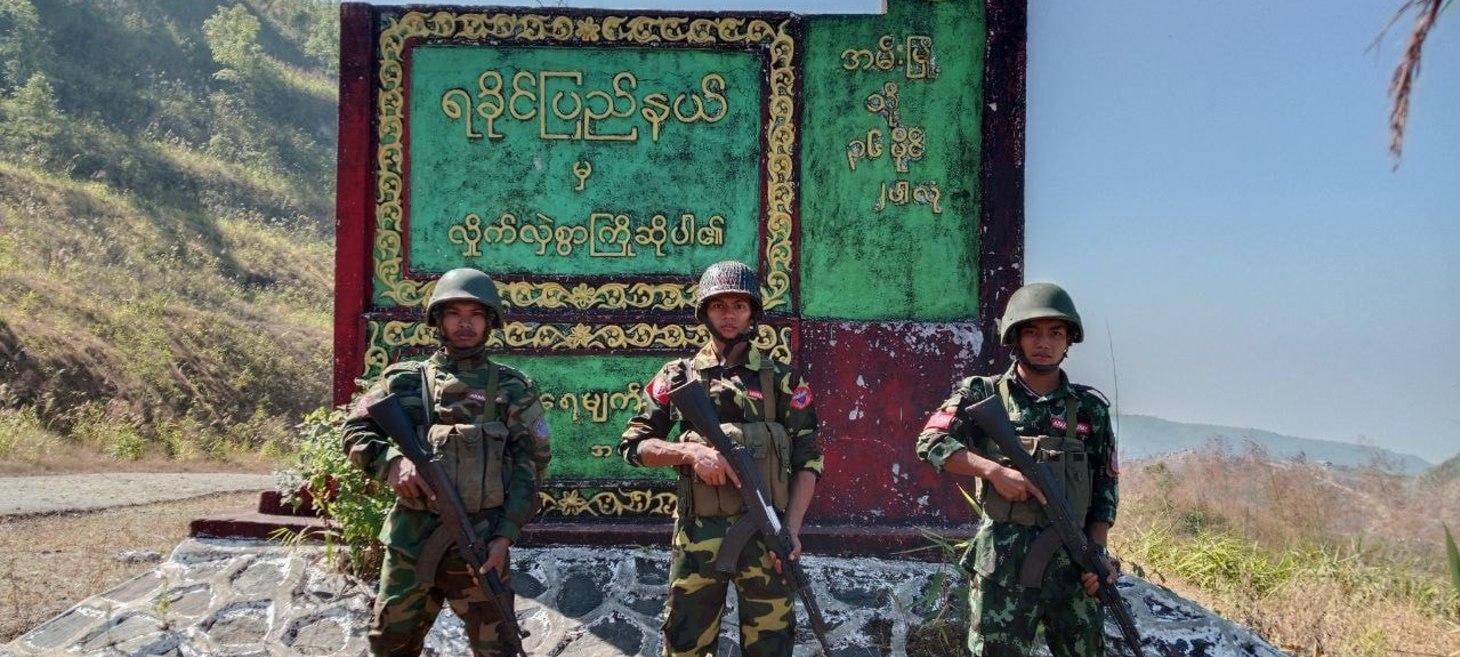
Clashes intensify near Rakhine-Magway border as anti-junta forces target key junta base
Heavy fighting led by anti-regime forces, including the Arakan Army (AA), is intensifying in Magway Region's Ngape Township near the Rakhine State border as they target a strategic junta air defence base. These forces are attacking junta outposts surrounding the base near Nat Yay Kan Hill, with battles ongoing. Anti-regime forces have taken control of the nearby villages of Linde and Sun Tet, causing junta troops to retreat from the area.
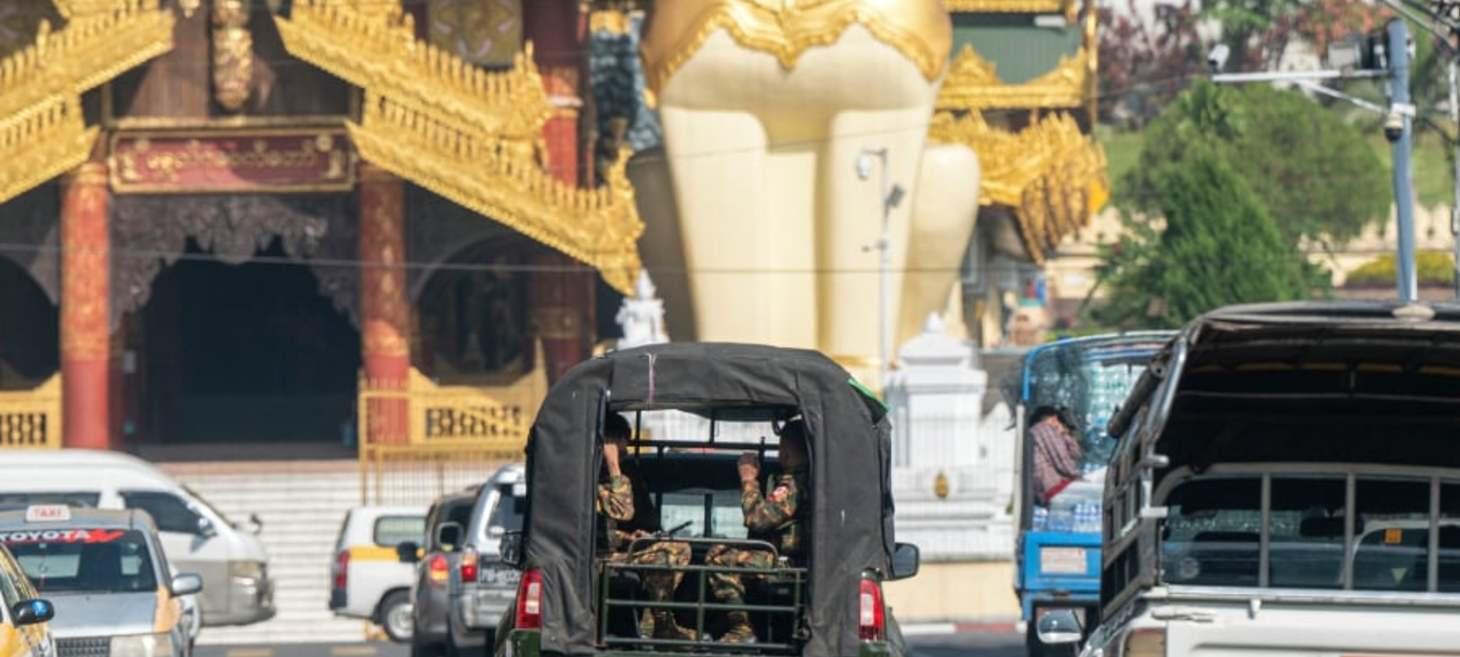
Myanmar junta’s disinformation campaigns pose grave threat to human rights, says report
According to a new report by Human Rights Myanmar (HRM), the Myanmar military junta is systematically deploying disinformation as a weapon to consolidate power, suppress dissent, and violate fundamental human rights. The junta employs an elaborate network of state-controlled media and covert online proxies, using tactics like disseminating false narratives through state outlets and manipulating digital platforms. This disinformation poses a grave threat to human rights, contributing to the criminalization of journalists, suppression of free expression, incitement to violence, and even atrocities.
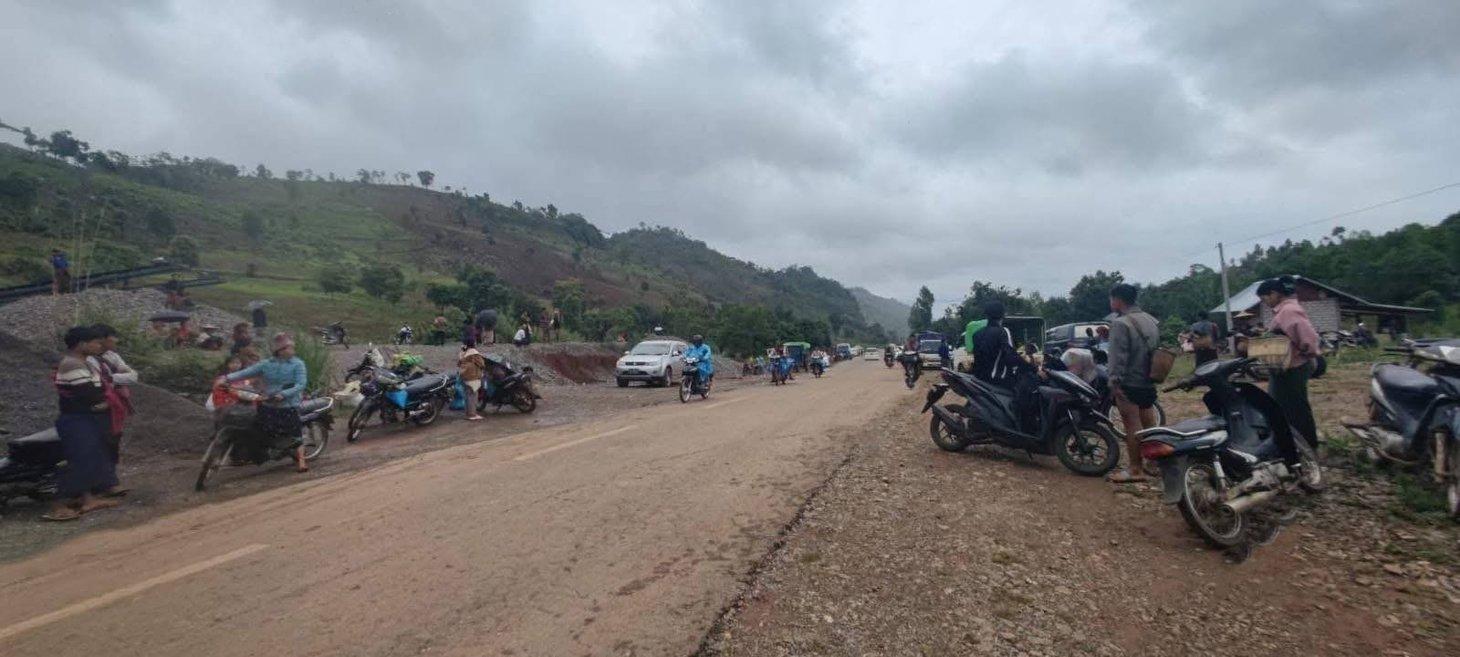
Trapped by War: Thousands Displaced as Conflict Escalates in Shan State
Conflict has escalated in southern Shan State, with Myanmar’s military intensifying its offensive in Hsihseng, Nyaung Shwe, and Panglong townships in a strategic push to reclaim control of the vital Loikaw–Mong Pai–Pai Khun road. This escalation has led to thousands of civilians being displaced, with many seeking shelter in surrounding villages and towns, while some are stranded in rural areas without resources and facing urgent needs for food, shelter, and warm clothing. Aid delivery to the conflict zone is severely hampered by destroyed roads and military checkpoints, leaving only a small local group able to provide assistance and resulting in assistance drying up.
Conscription
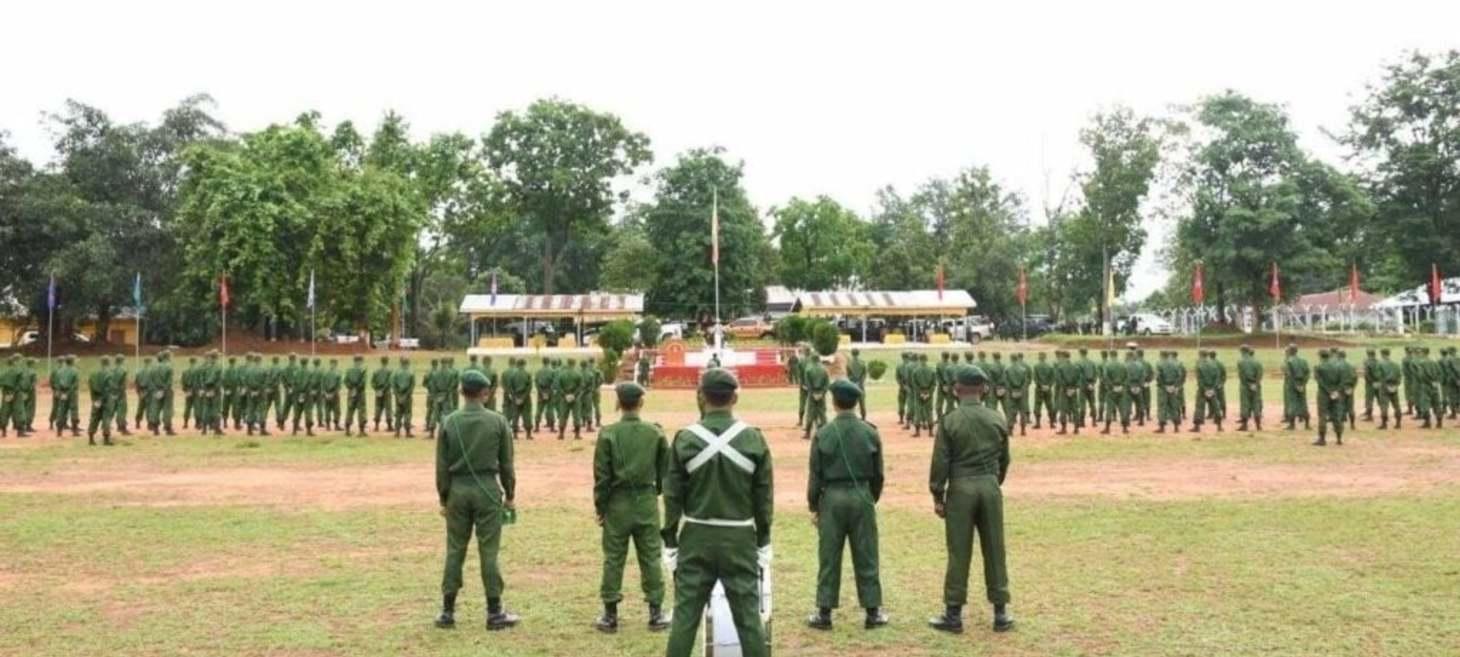
Military Conscription Begins in Nam Sang Under Junta’s Lottery System
The Myanmar military junta has begun military conscription in Nam Sang Township, southern Shan State, implementing a new lottery-based draft system. This formal system, which involves summoning men from urban wards to draw lots, represents a significant departure from previous informal recruitment methods. The shift to an official lottery has caused deep fear and worry among local residents, as it means individuals from any background could be selected for military training and potential deployment to front-line operations.
Crime & Narcotics

How Elon Musk’s Starlink enables a multibillion-dollar online scam industry
Sophisticated online fraud operations, often holding trafficked victims captive in compounds near Myanmar's border with Thailand, are critically reliant on internet connectivity, with Elon Musk's Starlink identified as the preferred provider. Starlink's small, portable dish receivers are being smuggled into Myanmar, where they are visible on the rooftops of these scam factories, despite being illegal in Thailand. While Thai authorities have taken steps like seizing equipment and attempting to cut off essential resources to the compounds, questions are raised about why Starlink, which has shown the ability to precisely control coverage in areas like Crimea, does not block service to these known harmful locations.
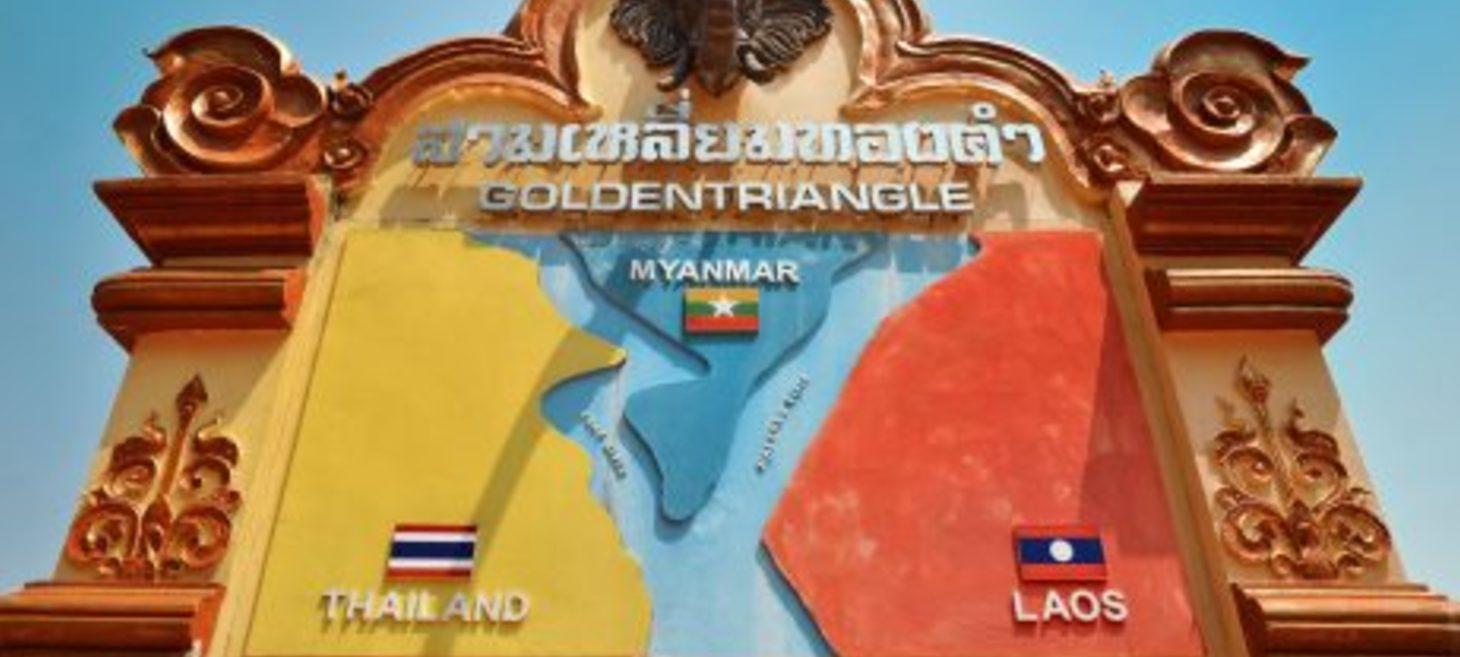
Golden Triangle Methamphetamine Trafficking Continues to Surge, UN Says
The United Nations reported that Asian synthetic drug production reached “unprecedented levels” in 2024, with a record 236 tons of methamphetamine seized in East and Southeast Asia, the vast majority originating from the Golden Triangle. This significant 24% increase in seizures from 2023 is largely attributed to unprecedented production in Myanmar's Shan State, where ongoing conflict and fractured jurisdictions provide conducive conditions for expansion. The surge is further fueled by increasingly agile and tech-savvy transnational drug gangs that use flexible networks and sophisticated money laundering, with notable trends including expanding trafficking routes and an increase in older drug users in some countries.
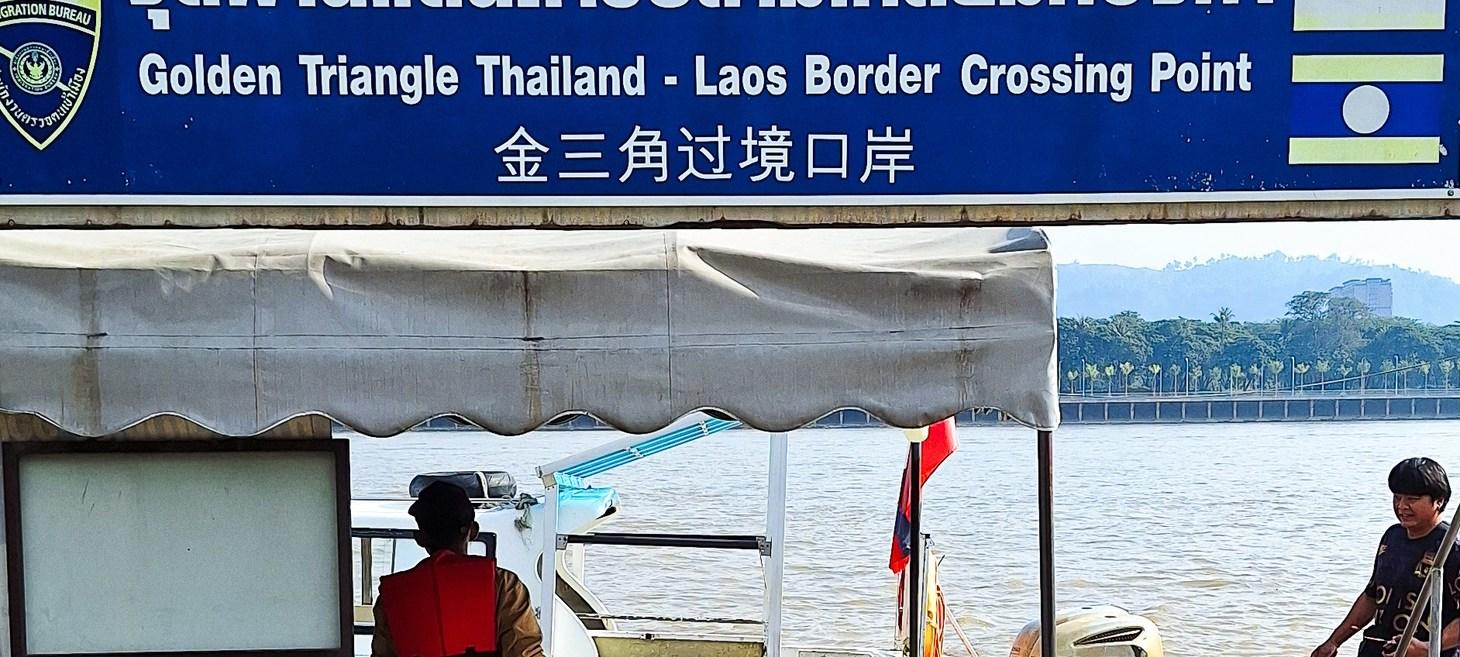
‘Each person had 10 phones’: Trapped in a cyber-scam centre in Laos
People from countries including those in Africa are lured to Southeast Asia, particularly places like the Golden Triangle Special Economic Zone (GTSEZ) in Laos, with deceptive offers of high-paying jobs in IT or data entry. Once there, their passports are confiscated, and they are forced into working in cyber-scam centres, often for up to 17 hours daily, performing online swindles such as "pig butchering" against unsuspecting victims globally. These trafficked workers are trapped, facing threats and violence if they don't meet targets, and although some initially receive promised salaries, making them appear potentially complicit, they are often eventually paid little or nothing and face difficulties in being identified as victims and returning home.
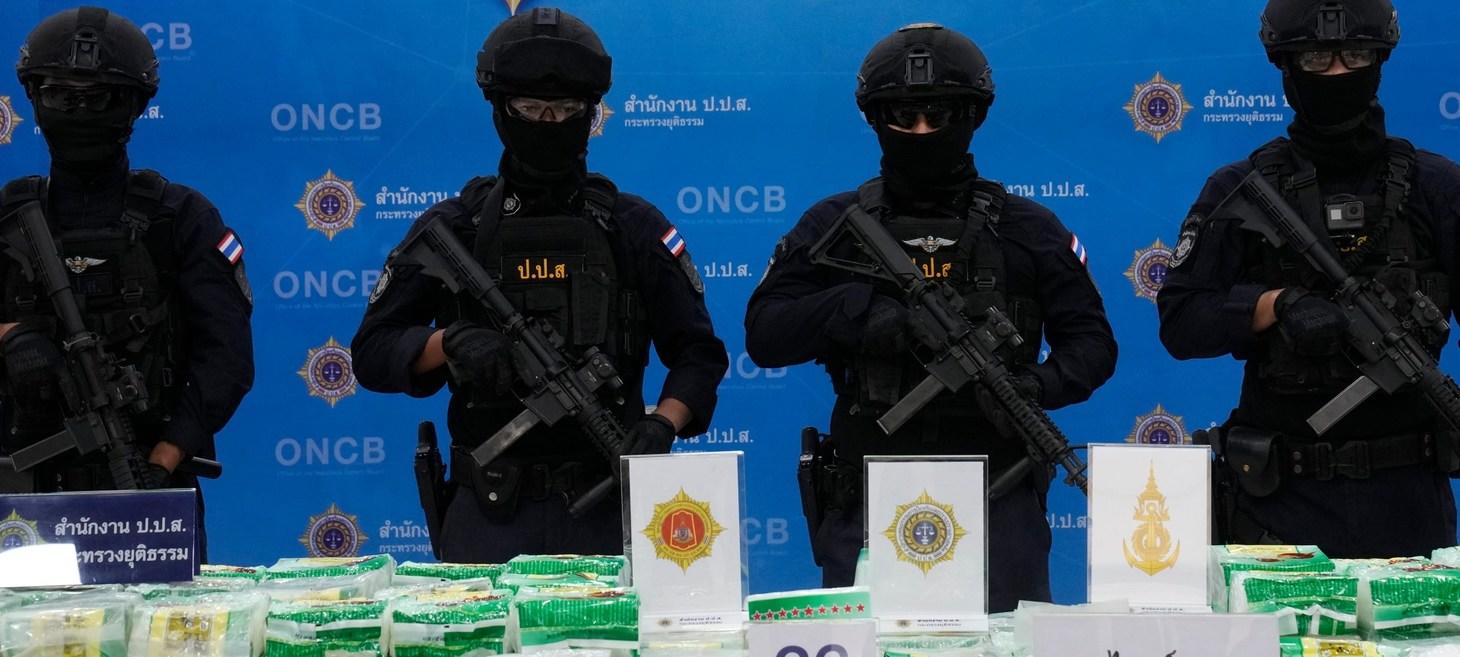
Methamphetamine trafficking surges from ‘Golden Triangle’ region
According to the UNODC, methamphetamine trafficking from the infamous "Golden Triangle" region, centered on Myanmar, has surged, resulting in a record 236 tonnes seized in East and Southeast Asia in 2024, a 24 percent increase from the previous year. This "explosive growth" is linked to unprecedented production levels, aided by conditions created by Myanmar's civil war, and the remarkable agility of transnational drug gangs who are adopting new technologies and expanding trafficking routes. Key new corridors include routes from Myanmar through Laos to Cambodia and maritime routes involving Malaysia, Indonesia, and the Philippines.
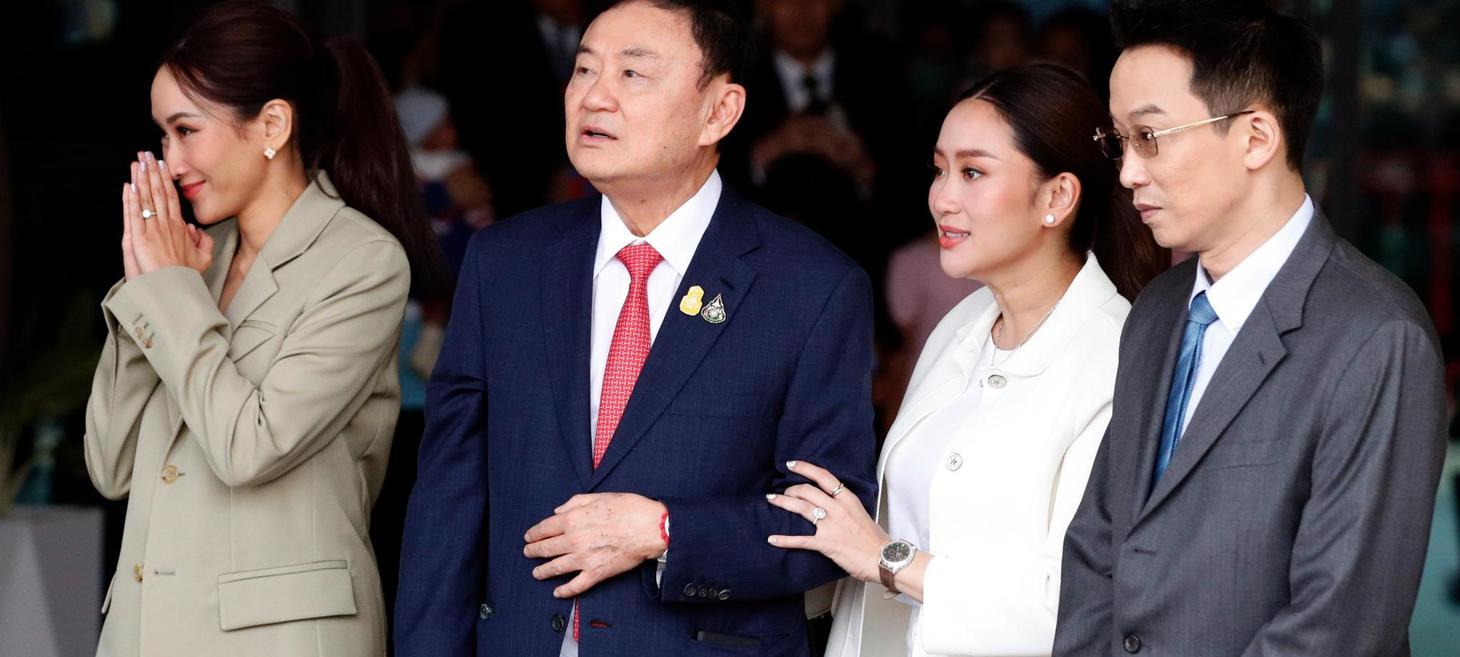
Former Thai PM Thaksin urges ‘anti-drug war’ against Wa army
Former Thai Prime Minister Thaksin Shinawatra has called for an “anti-drug war” against Myanmar’s most powerful ethnic armed group, the United Wa State Army (UWSA). He stated that the UWSA is flooding Thailand with cheap methamphetamine, which is destroying the young generation and causing suffering and fear in communities. This urgent call comes alongside a new UN report indicating an “exponential surge” in methamphetamine production in Myanmar since the 2021 coup.
Economy
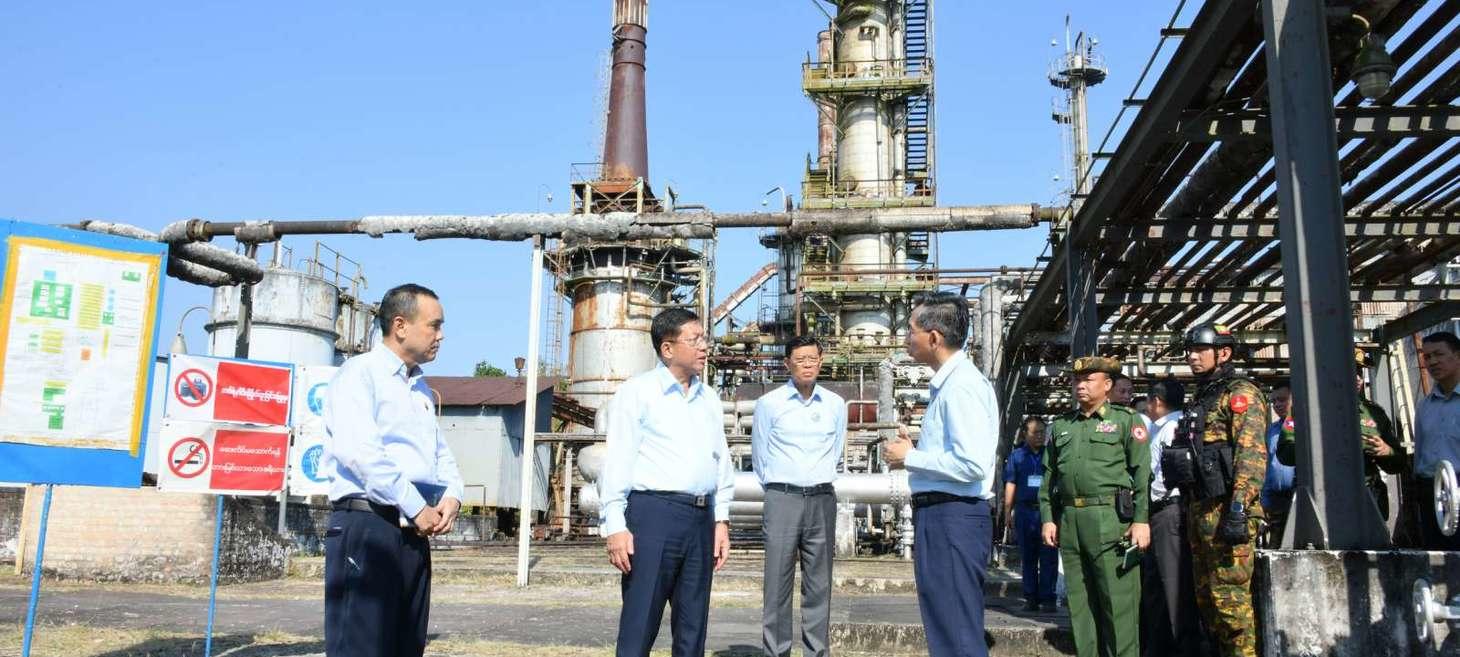
Singapore oil firm under scrutiny over alleged links to Myanmar military
Singapore-based oil firm Interra Resources is facing scrutiny over allegations from Justice For Myanmar (JFM) that its operations support Myanmar's military regime. Interra's joint venture supplied significant amounts of oil to the state-owned MOGE, which is under international sanctions, leading the company to seek legal advice after suspending trading. Critics argue Interra's legal review was too narrow, warning that the company's continued activities could still indirectly aid the regime and potentially harm Singapore's reputation and expose its exchange to liability.
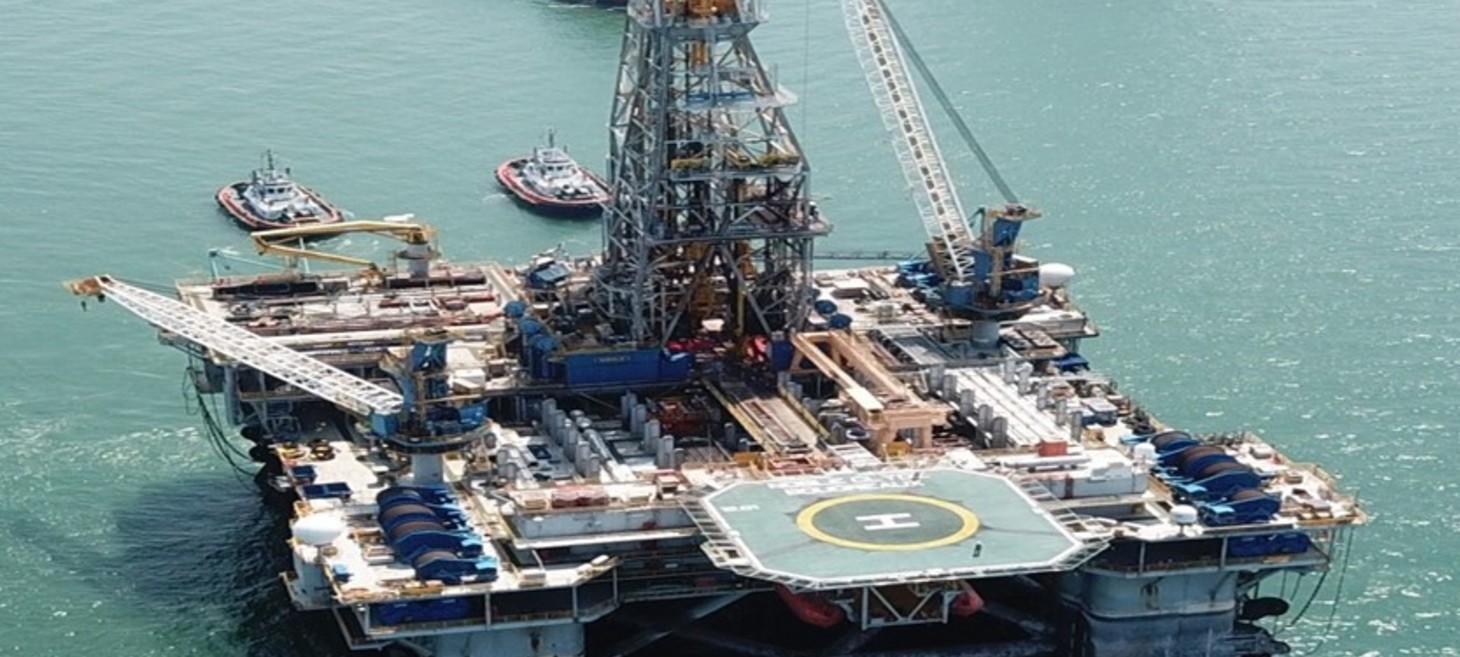
New Thai-Myanmar joint venture to take over offshore oil and gas project
A new Thai-Myanmar joint venture, formed by the junta-controlled Myanmar Oil and Gas Enterprise (MOGE) and Thai-owned Gulf Petroleum Myanmar (GPM), has taken over an offshore oil and gas project in Mottama offshore block M-10. A Chinese state-owned company previously controlled this block but gave up in 2013 after finding too little gas, and other firms like Malaysian state-owned Petronas also departed Myanmar after the 2021 coup. MOGE and GPM signed a production sharing contract on May 29 to jointly operate the “Min Ye Thu” project to seek and extract gas or oil.
Ethnic Issues
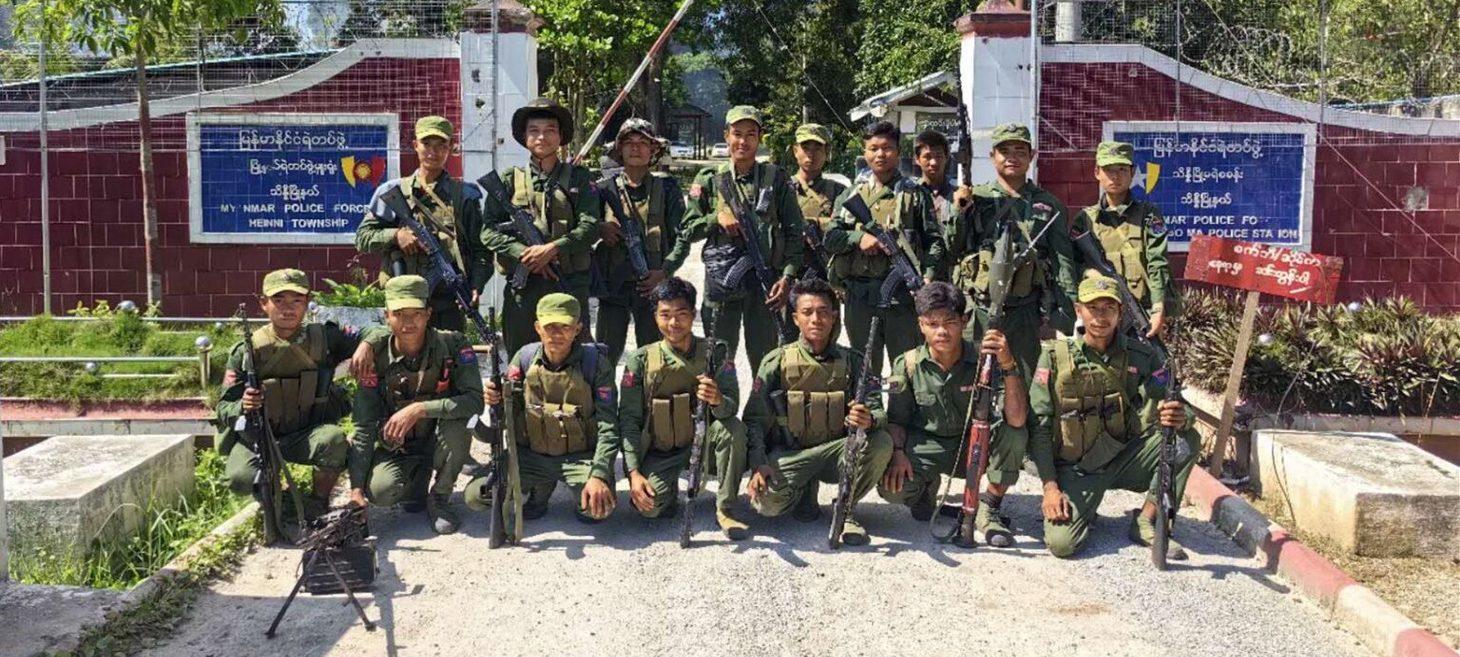
Chinese ventures crop up in northern Shan State town under Kokang administration
Since its capture by the Kokang Army (MNDAA) in late 2023, the northern Shan State town of Hseni has drawn large numbers of Chinese business people. This influx has accelerated since a Chinese government-brokered ceasefire and includes entrepreneurs leasing or buying farmland and homes left behind by the displaced. Located on a major trade route crossing the border with China's Yunnan Province, Hseni is now under the control of the MNDAA, an ethnically Kokang group.
Foreign Affairs
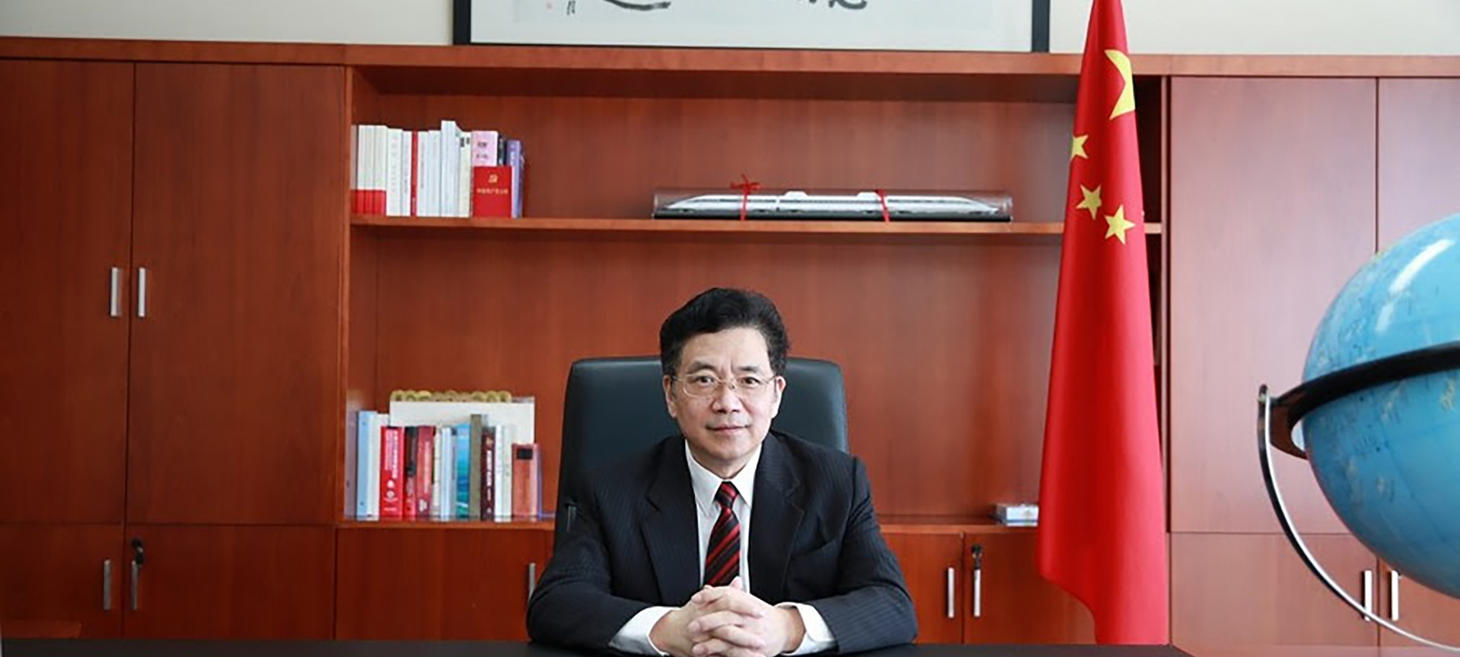
China Pushing Myanmar Ethnic Armies to Halt Offensives Along BRI: Sources
China's special envoy, Deng Xijun, has urged the Kachin Independence Army (KIA) and Arakan Army (AA) to halt military offensives in Bhamo and Kyaukphyu, both key locations for China's Belt and Road Initiative (BRI), reportedly offering improved ties in return. China, concerned about the potential collapse of the Myanmar military, is pressuring ethnic groups along its border to cease fighting and engage in talks, aiming to create a stable environment with the military at its core. This pressure comes as the KIA continues an offensive in Bhamo and the AA has seized control of most townships in Rakhine State, including clashes in Kyaukphyu.

Bangladesh is divided over whether to help the US carve out a proxy state from Myanmar
Bangladesh is currently divided over whether to aid the US in potentially carving out a proxy state from Myanmar, a situation that reveals a power struggle between the interim government under Chief Advisor Muhammad Yunus and the military led by General Waker-uz-Zaman. General Waker-uz-Zaman has criticized the government's decision to participate in a humanitarian corridor to Myanmar's Rakhine State, fearing it could involve facilitating US arms to groups like the Three Brotherhood Alliance under the guise of aid, potentially harming ties with China and betraying national interests. This division is also intertwined with domestic political tensions, as the interim government may be seeking continued American support to remain in power despite military pressure to hold elections and growing protests.
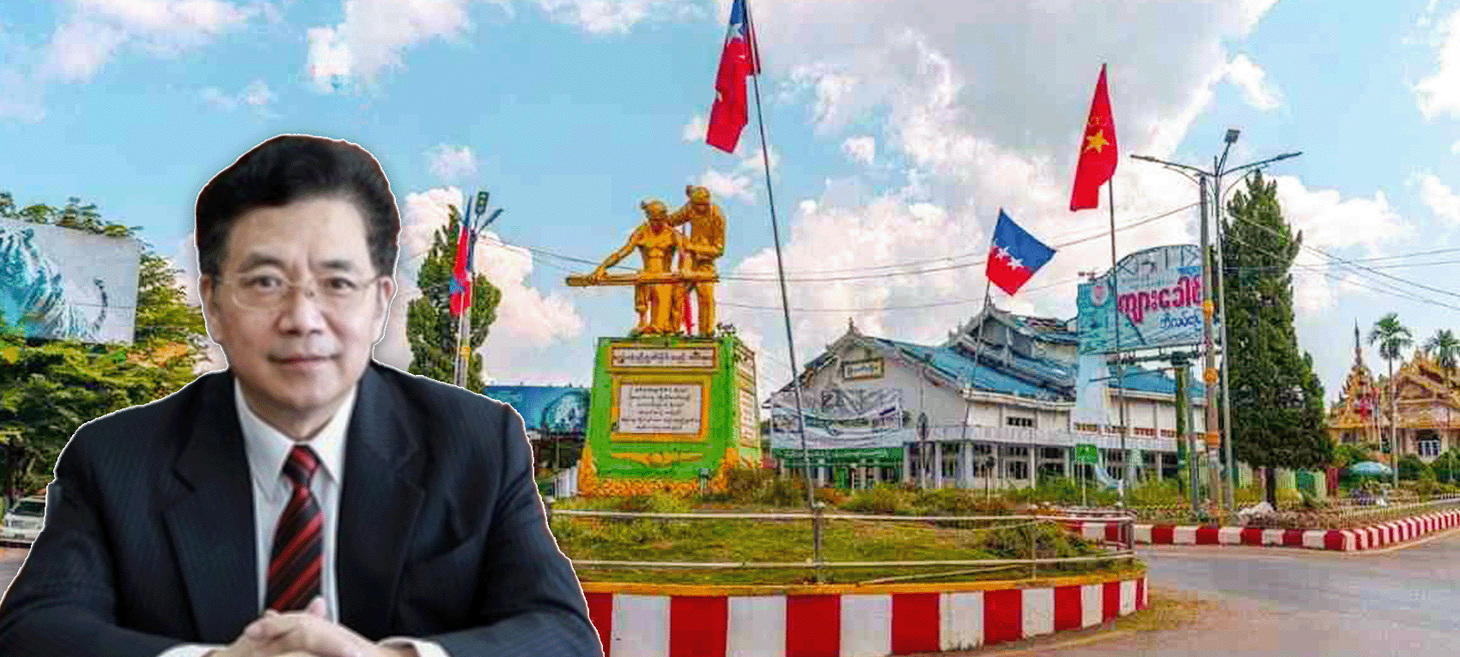
China Delays Truce Monitoring as Myanmar Junta’s Grip on Lashio Falters
China has delayed opening its planned ceasefire monitoring office in Lashio more than a month after supervising the handover of the city back to the Myanmar military regime in April 2025, reportedly waiting to see how the situation unfolds as it still doesn't trust the regime. The MNDAA has also delayed establishing its liaison office within Lashio, with its forces remaining in the countryside while the junta struggles to fully reestablish its presence and command inside the city. Since the junta's return, Lashio has seen a surge in security issues such as robberies, increased prices due to taxes, and low border trade as key trade hubs are still controlled by the MNDAA's allies.
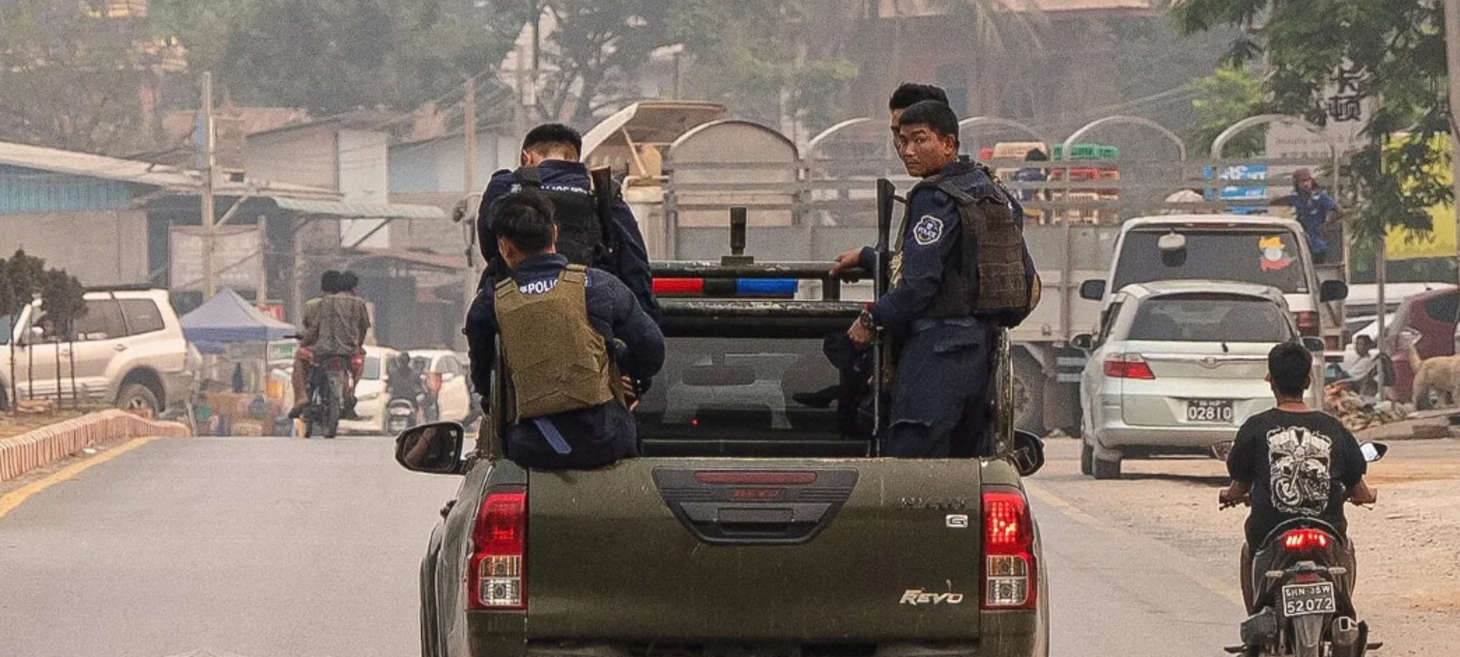
China coerces rebel withdrawal in Myanmar to safeguard its billions: Inside the furtive surrender of...
Here is a three-sentence summary based on the provided sources:
China reportedly pressured Myanmar's rebel forces to withdraw from the strategic city of Lashio to safeguard its substantial economic investments in the region, including crucial oil and gas pipelines and Belt and Road infrastructure. This intervention, seen by analysts and rebels as driven entirely by self-interest, allegedly involved tactics such as cutting electricity, blocking trade, arresting a senior rebel commander, and threatening increased junta air raids. Following the rebel withdrawal, the junta military returned to Lashio, with some trucks reportedly marked with Chinese characters for "peace monitors," highlighting China's covert involvement despite its official noninterference stance.
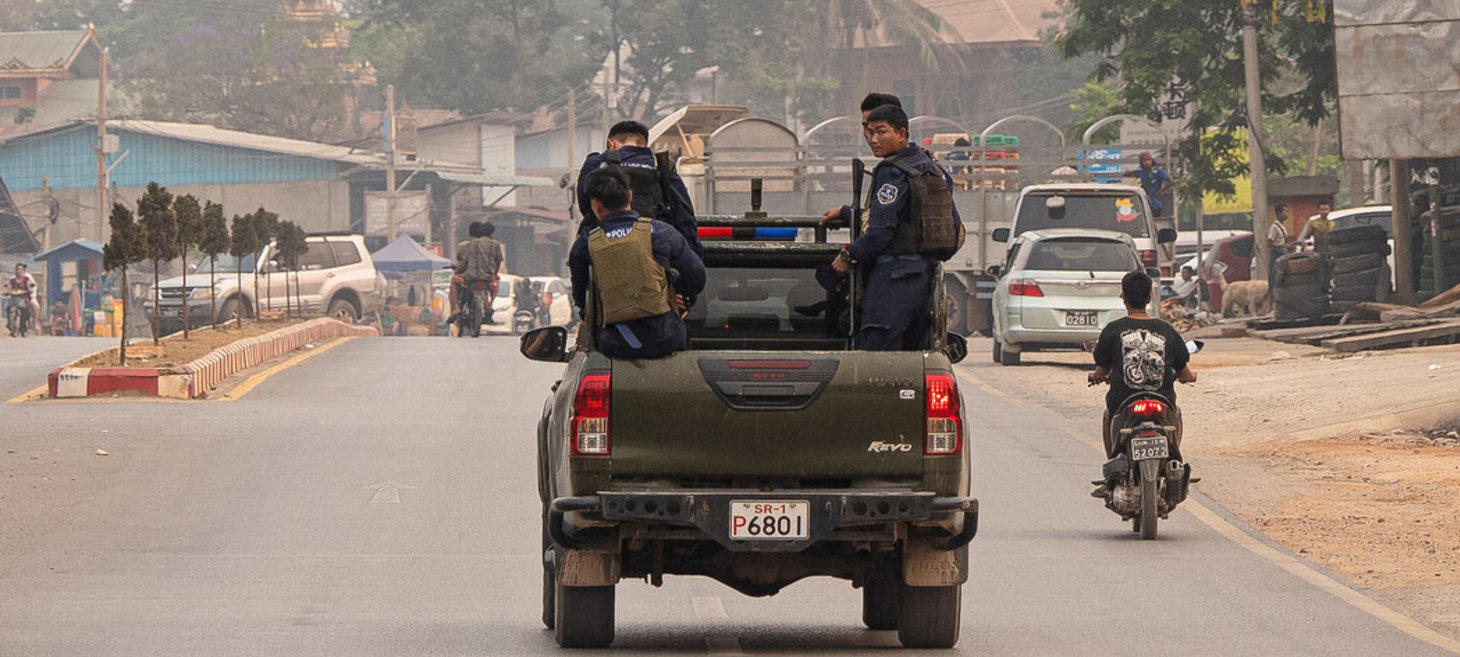
Why Myanmar Rebels Retreated From Lashio
Rebel forces in Myanmar achieved a major victory by capturing the city of Lashio after intense street fighting, but they later abandoned the city under pressure from China. China intervened significantly in the civil war to protect its substantial investments worth billions of dollars, such as oil and gas pipelines and Belt and Road infrastructure projects, despite publicly claiming a policy of noninterference. Using tactics like blocking border trade, cutting services, and reportedly detaining a rebel commander, China influenced the situation to allow the junta to reclaim control of Lashio.
Military
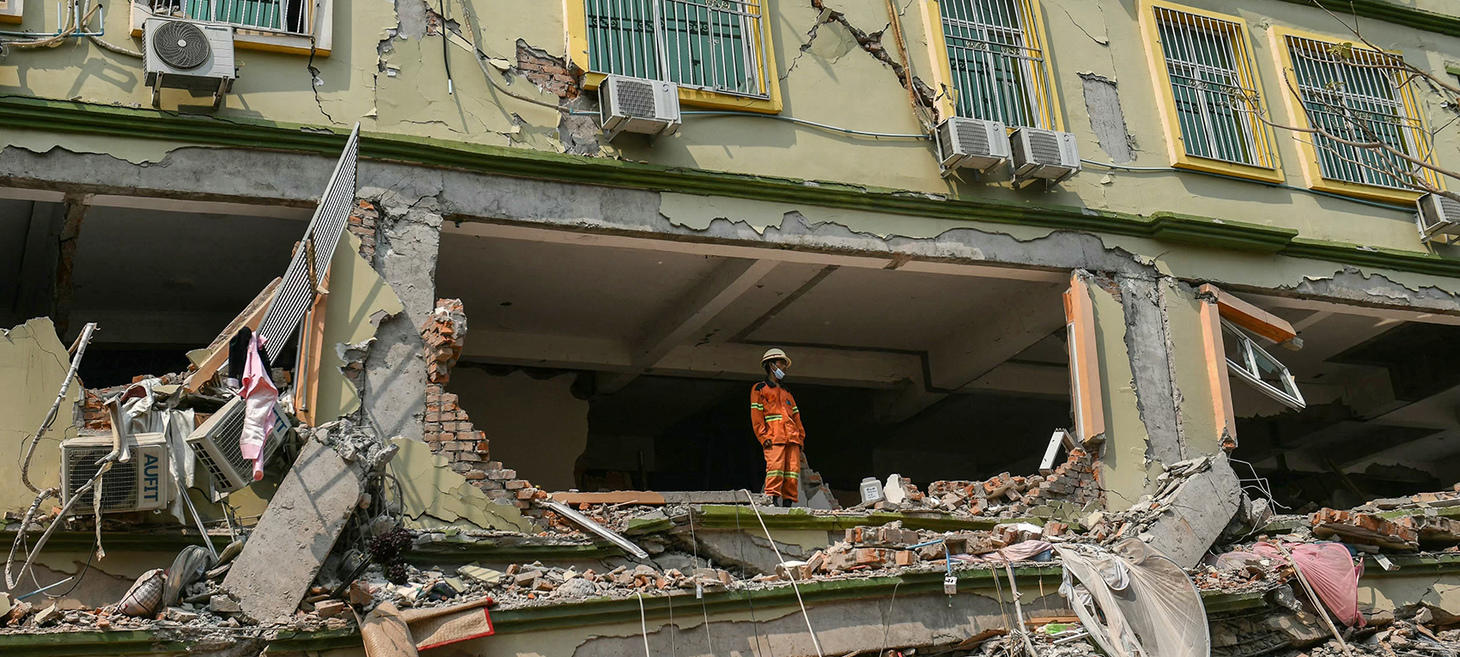
Myanmar Junta Collects US$34m in Quake ‘Donations’
Myanmar's junta collected approximately US$34 million in quake 'donations' from cronies at two ceremonies, with the regime stating the funds would help construct 51 four-story apartment buildings. The March 28 earthquake resulted in 3,740 deaths and 3.8 trillion kyats of damage. However, the junta is under scrutiny as it has reportedly conducted numerous airstrikes since the earthquake, allegedly taking advantage of anti-regime ceasefires, while residents still struggle with debris and displaced survivors are asked to leave school shelters.
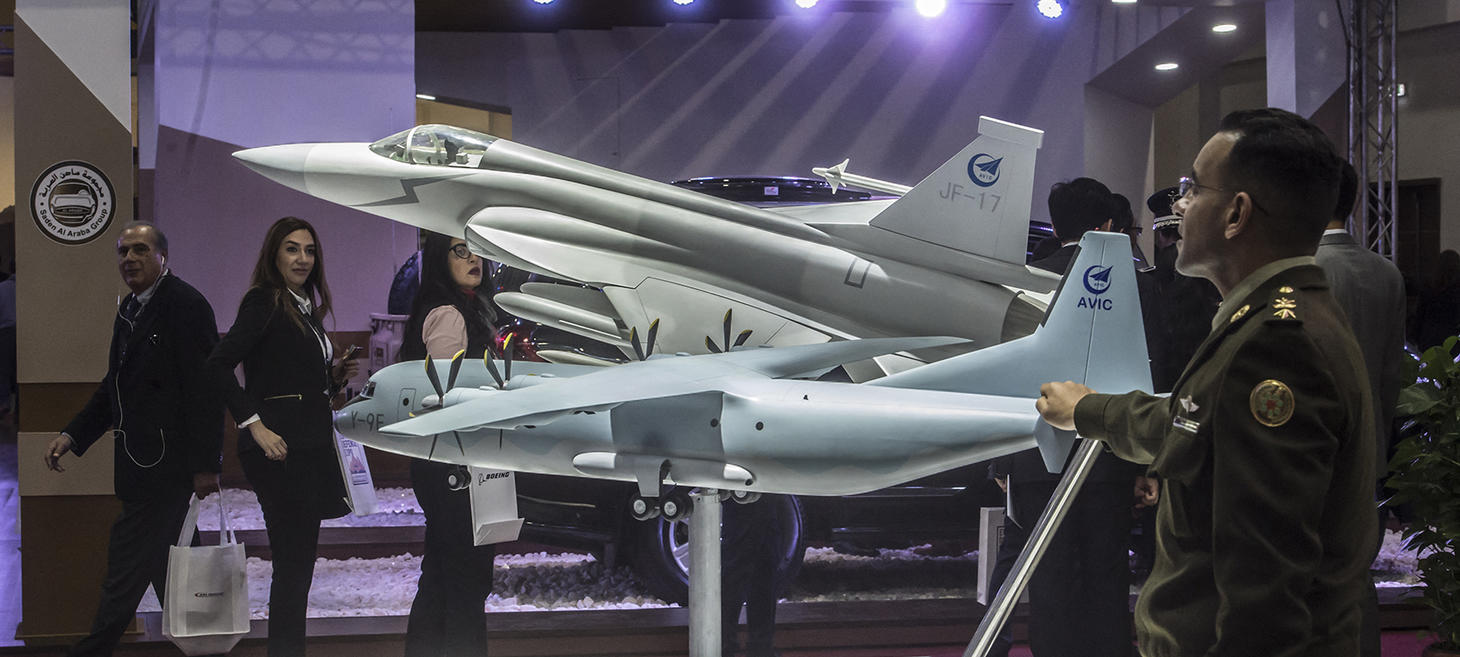
The Hidden Costs of Relying on Chinese Military Hardware
While China has become a major global arms supplier offering affordable military hardware, systemic corruption and quality deficiencies within its defense sector are undermining the reliability and effectiveness of its exports. Investigations within China and repeated reports of performance issues and failures by client states like Pakistan, Myanmar, Algeria, and Bangladesh highlight deep-rooted problems from design to export. These issues pose significant operational, strategic, and financial risks for importing nations, leading to growing calls for diversification away from Chinese sources.
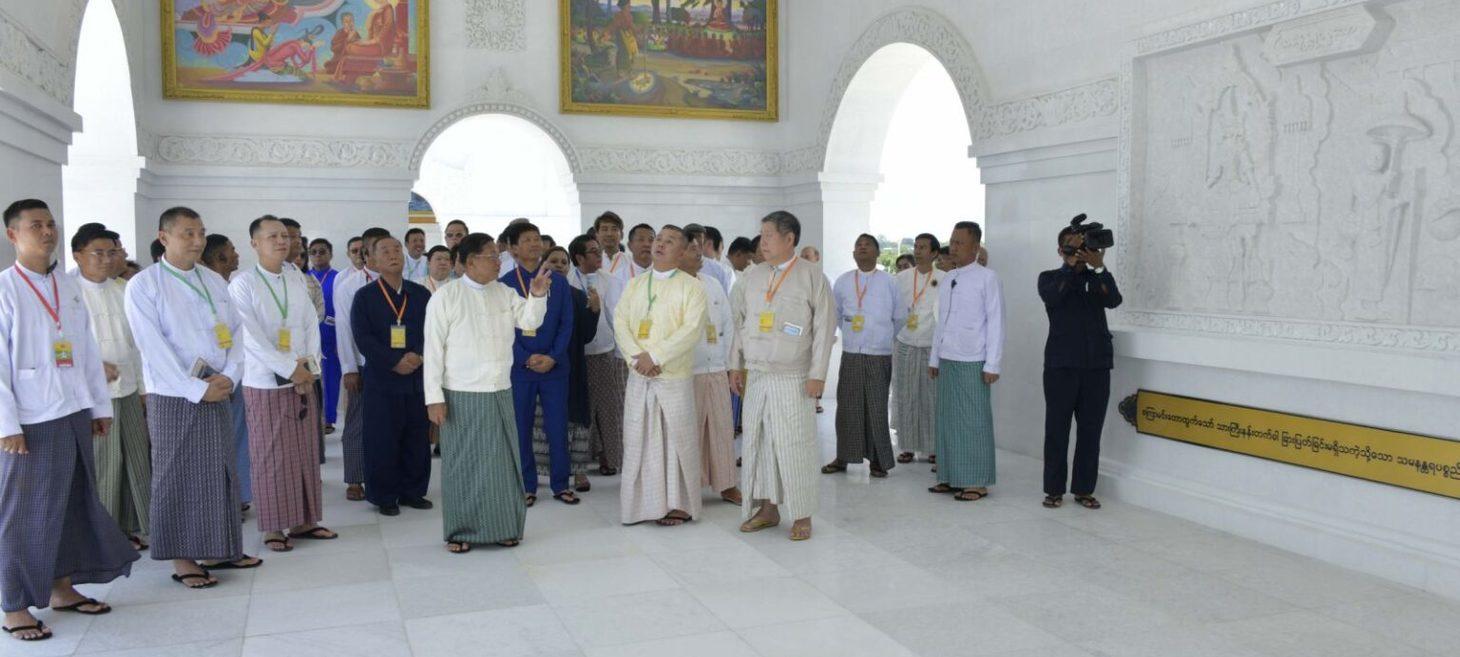
Myanmar junta’s capital reconstruction funded by Wa army, Mongla armed group as well as cronies
Myanmar's military junta is receiving financial support for reconstruction efforts in its capital, Naypyitaw. This funding comes from ethnic armed groups like the United Wa State Army and the National Democratic Alliance Army, as well as military "crony" businessmen. The money, totaling 131.5 billion kyat ($29.8 million) plus $2.3 million USD, is intended for rebuilding civil service housing damaged by a recent earthquake.
Telecommunications
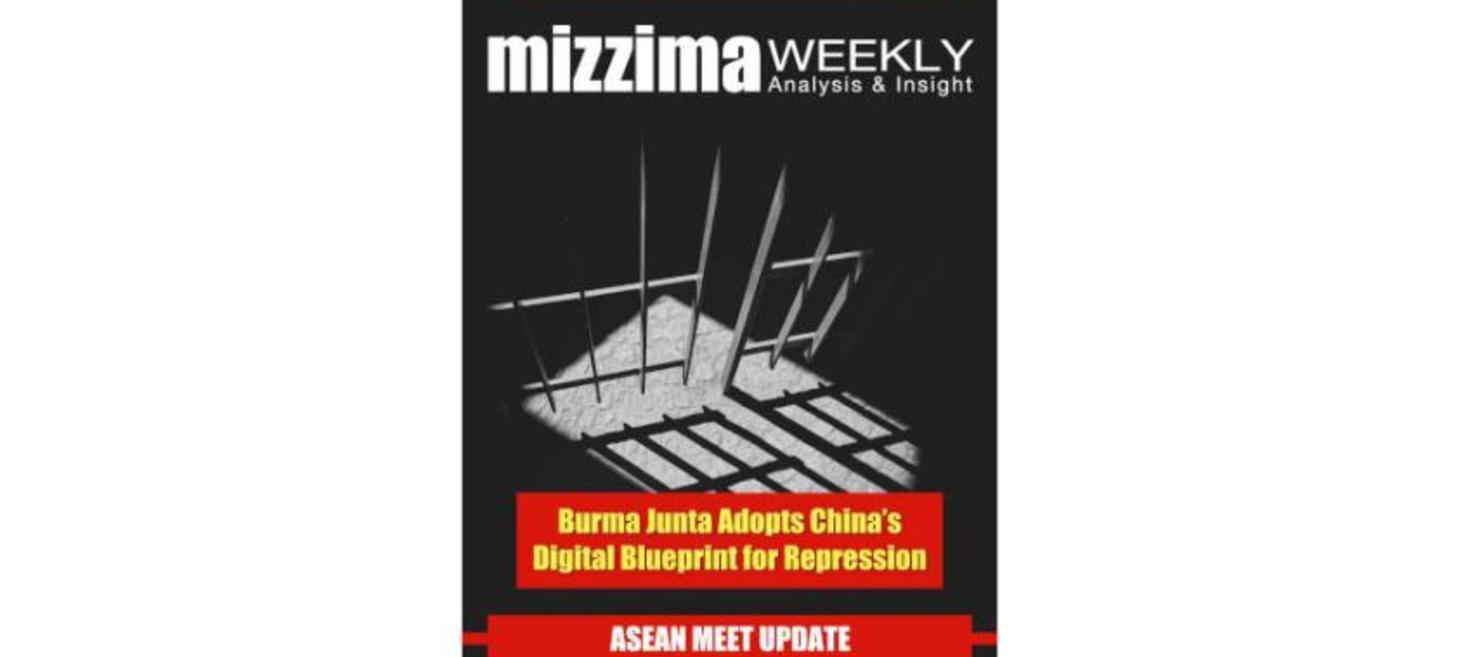
Burma Junta Adopts China's Digital Blueprint for Represion
The Myanmar military junta has significantly intensified its use of surveillance technologies, adopting elements of China's digital authoritarian model, including mandatory biometric registration and widespread internet shutdowns to suppress dissent and control the population. Amid escalating conflict with resistance forces across the country, the junta continues to conduct widespread airstrikes targeting civilian areas, including schools, villages, and even a wedding ceremony, resulting in numerous casualties and displacement, even during a supposed post-earthquake ceasefire period. The humanitarian situation is dire, marked by a slow earthquake cleanup exacerbated by the monsoon season and lack of government support, worsening malnutrition and paralysis in prisons due to ration cuts, and the perilous journeys and deaths of Rohingya refugees attempting to flee the country.